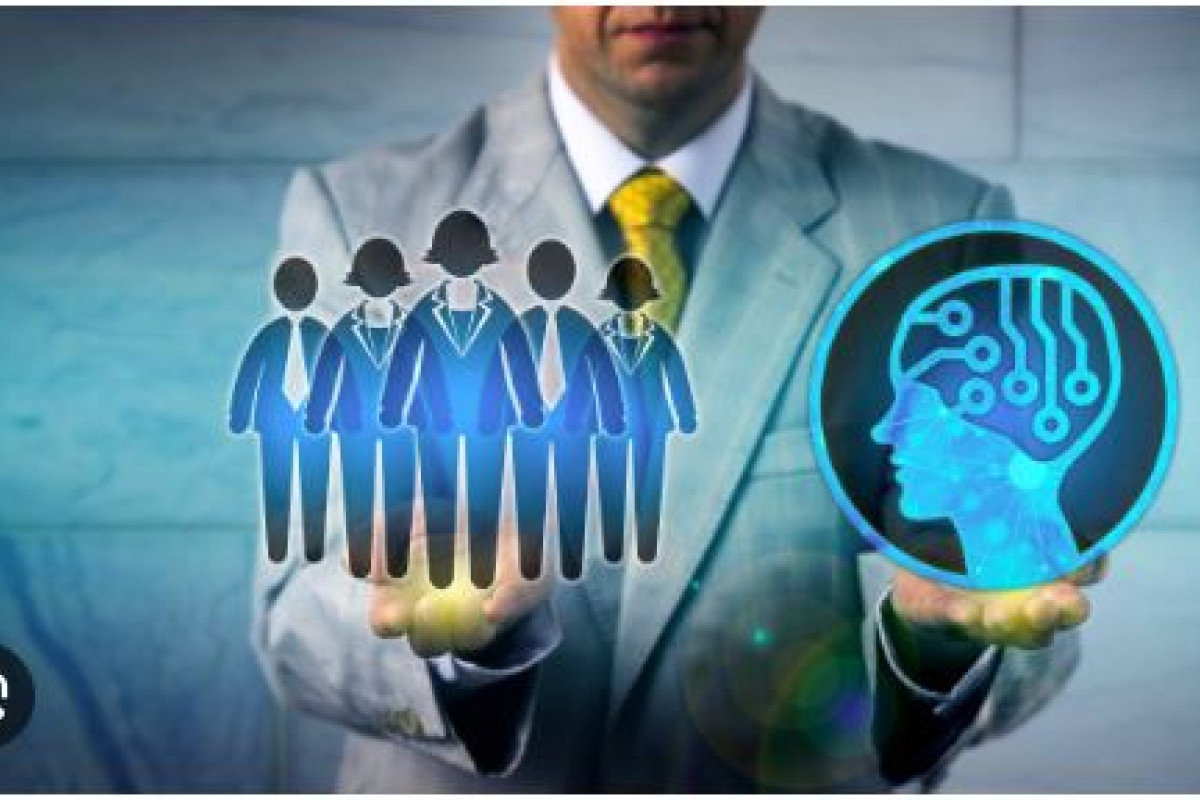Artificial Intelligence in human resources refers to the use of machine learning, natural language processing, and other Artificial Intelligence technologies to simplify human resource tasks and support decision-making. It is set to transform human resource management bringing in a new era of productivity and effectiveness. Artificial Intelligence simplifies Human Resource tasks by combining data analytics, machine learning, and automation freeing up important time and improving results.
As Artificial Intelligence progresses from simple automation to complex growth, businesses are researching how Artificial Intelligence tools may improve the Human Resource experience for both employees and job applicants. This revolution goes beyond time-saving and it provides Human Resource professionals with real-time data, insightful insights, and informed suggestions, ushering in a future in which Artificial Intelligence plays an important role in Human Resource's goal to support and engage talent.
The world of human resources is undergoing a shift unlike any other in recent times and Artificial Intelligence is at the center of this revolution. In a time when the workplace is changing at a rate never before seen, Artificial Intelligence is proving to be the spark for a new era in human resources altering how businesses recruit, hire, manage and retain personnel. The incorporation of Artificial Intelligence into Human Resource technology empowers Human Resource professionals with Artificial Intelligence technologies moving beyond efficiency to serve as catalysts for creativity in this ever-changing landscape.
Listed below is how Human Resource departments leverage Artificial Intelligence for smarter, data-driven decision-making:
I. Recruitment and Talent Acquisition: Artificial intelligence has transformed the recruitment process. Human Resource departments can sort through hundreds of resumes using complex algorithms and machine learning to locate the best candidates for open positions. This not only saves time, but also allows for more accurate and unbiased candidate selection. Artificial Intelligence powered recruitment solutions use natural language processing to match candidates to job descriptions, ensuring that both technical qualifications and soft talents are considered.
II. Employee Onboarding: The process for onboarding has been simplified by artificial intelligence. Chatbots and virtual assistants can answer inquiries, give new hires information, and help them over the first several months of their job. This lessens the effort for Human Resource staff members while also improving the employee experience.
III. Performance Management and Feedback: Artificial Intelligence powered performance management systems can provide continuous feedback to employees. They use data analytics to assess individual and team performance, enabling more data-driven decisions. Employees can receive personalized coaching and development suggestions, leading to a more engaged and productive workforce.
IV. Employee Well-being and Engagement: Artificial Intelligence is capable of tracking employee engagement and mood. Human Resource may learn more about the health of their workforce and take proactive steps to address any concerns by using surveys and sentiment analysis. Worker happiness is becoming a critical component of productivity and retention and Artificial Intelligence solutions have shown to be incredibly useful in this area.
V. Talent Development and Training: Algorithms powered by Article Intelligence are able to evaluate each person's ability gaps and suggest options for growth and training. With this individualized approach to learning and development, staff members are guaranteed to be constantly evolving and gaining the competencies required to succeed in their positions.
VI. Workforce planning and Predictive Analytics: Data can be used by Artificial Intelligence in Human Resource to forecast future labor requirements. By evaluating past trends and considering potential situations, firms may plan for their talent needs more effectively. This minimizes labor expenses while simultaneously preventing talent shortages.
Challenges of Implementing Artificial Intelligence in Human Resource
The integration of Artificial Intelligence in Human Resource processes brings transformative opportunities but it also presents several key challenges that organizations must address. Some of the challenges are listed below:
I. Data privacy and security concerns arise when handling large amounts of sensitive employee data.
II. The specialized skills needed to implement and manage AI technology can also lead to a potential skills gap
III. Employee resistance to AI due to the fear of job loss due to automation must be controlled and viewed as an aid rather than a threat
IV. Artificial Intelligence can be biased
The following survey reports are available
- Sectorial-Based Salary Survey Reports
- National Salary Survey Report (Consolidation of 13 Sectors)
- Non-executive Directors Fees Survey Report
- Human Resource Policy Documents

